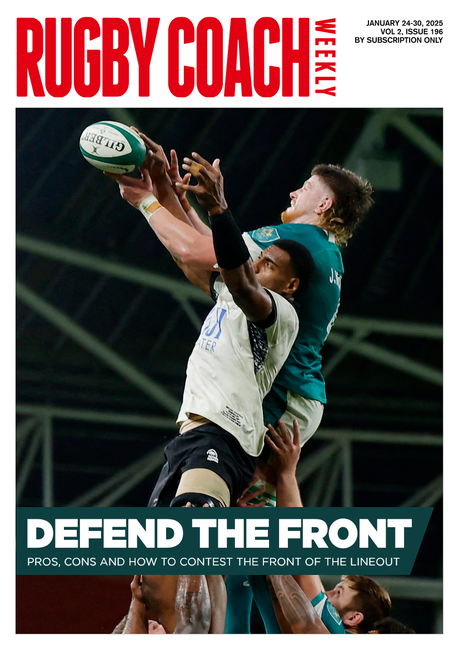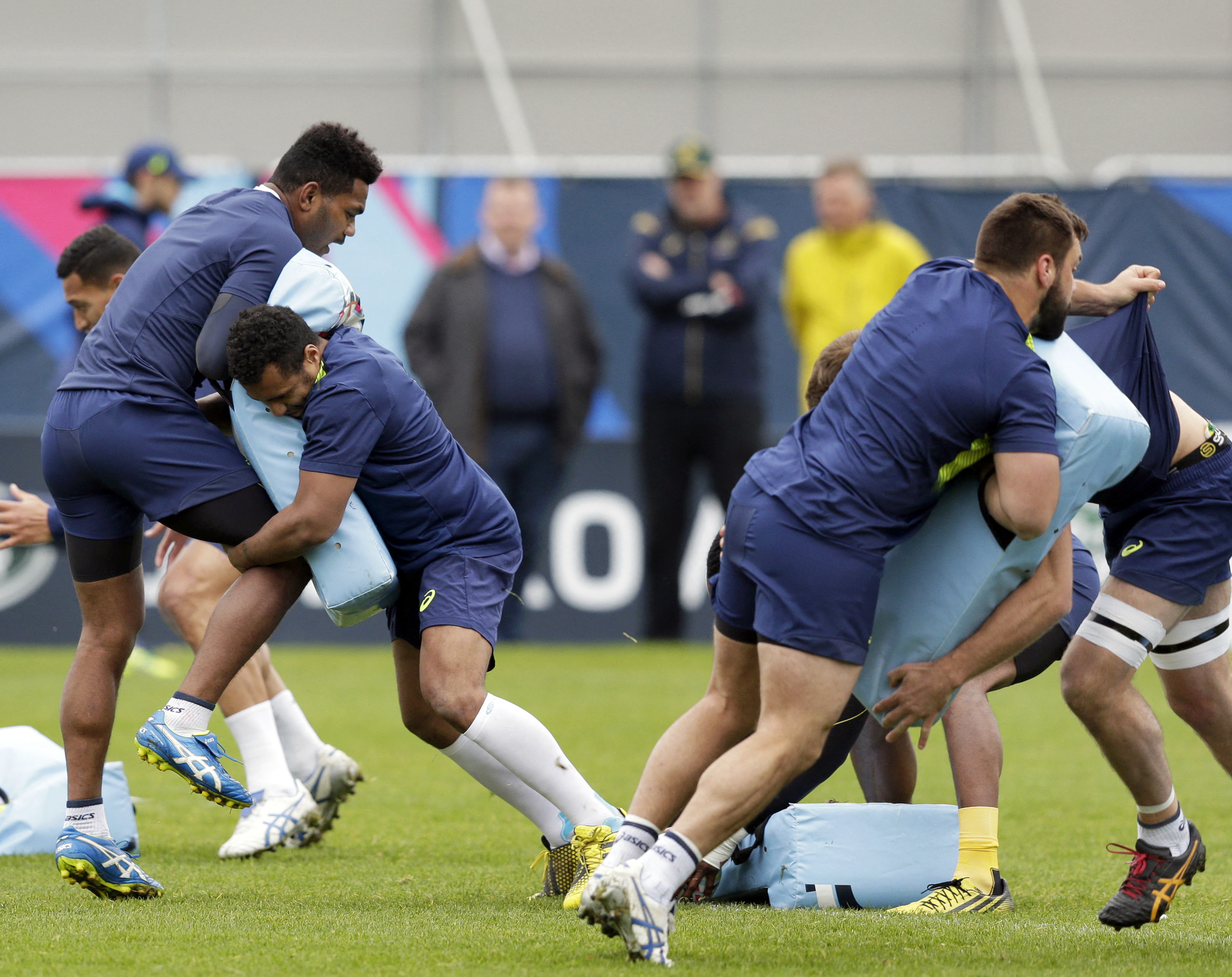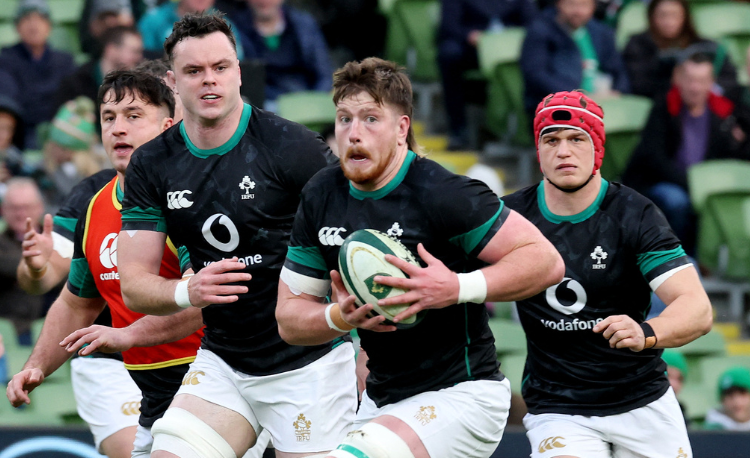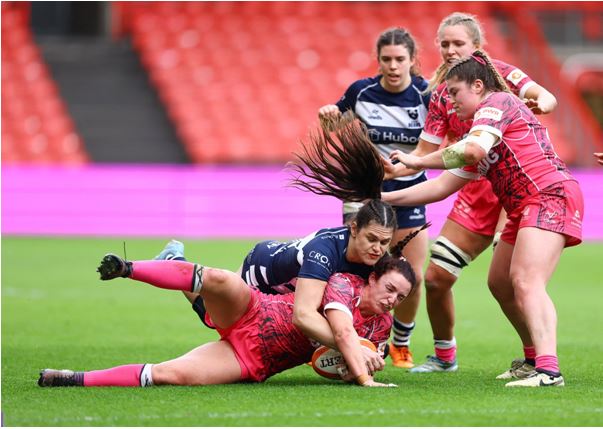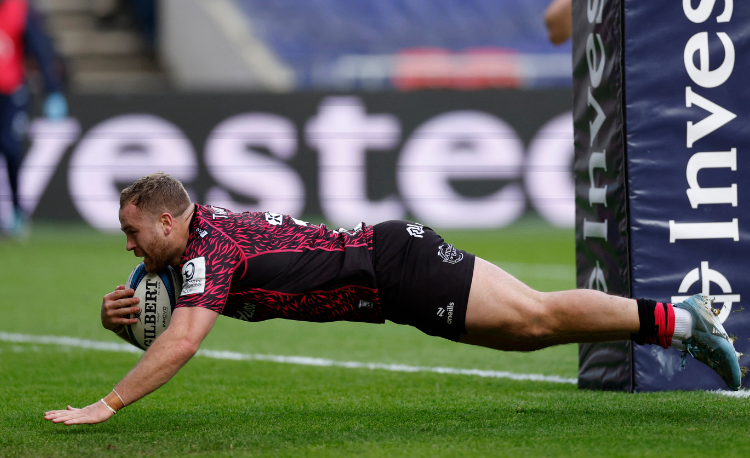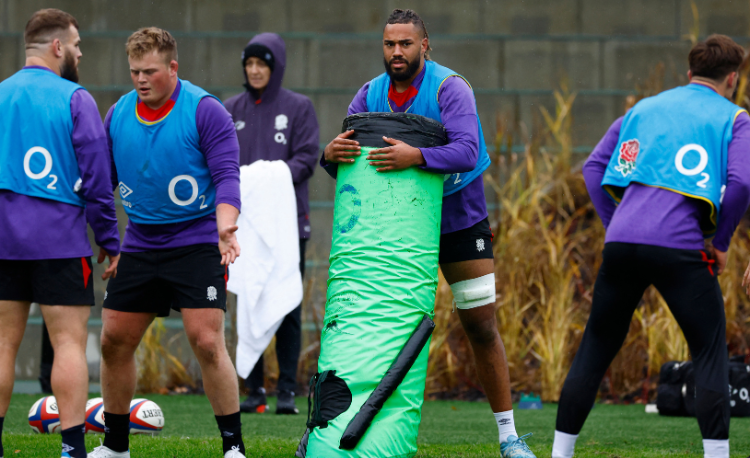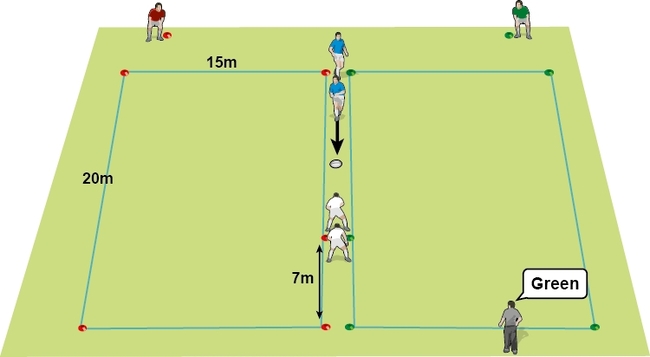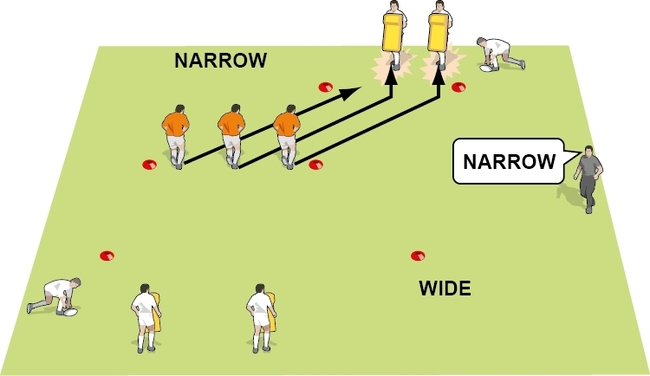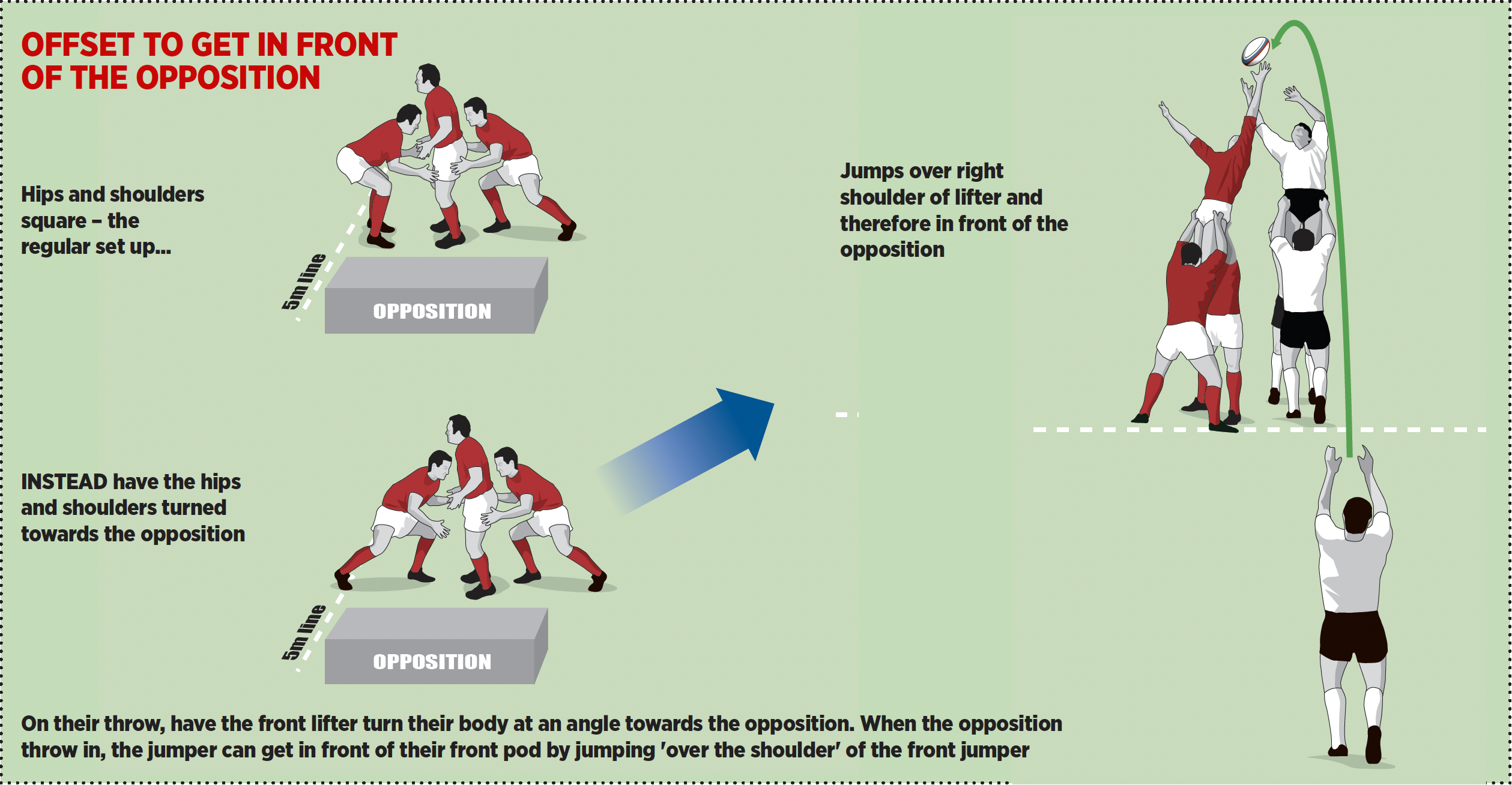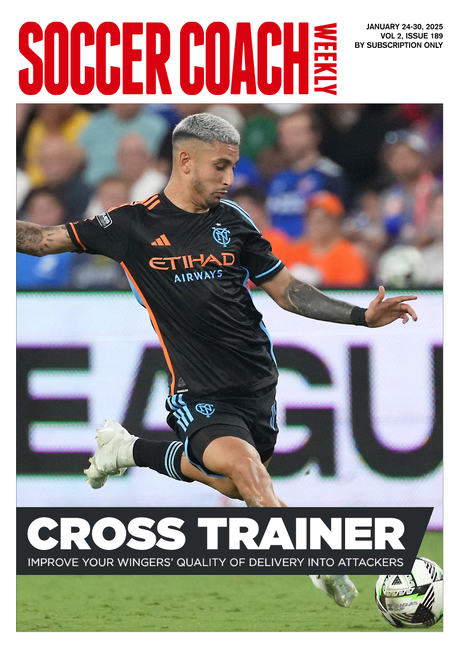This girl can and why we should all listen
Eleanor Wilkinson has been recognised by her county for the enormous contribution she’s made to girls’ rugby. Rugby Coach Weekly caught up with the busy college student who’s a player, coach and referee, and still only 16.
 Eleanor Wilkinson is a RFU level 2 coach, referee and a player. She’s also just won Leicestershire Young Female Player of the Year. That’s a lot to pack in for someone who’s still only 16 and in her first year of college. I caught up with Eleanor to find out more about her busy rugby life. She gave me plenty of insights into the game and the women’s game that might well make you rethink your own approach.
Eleanor Wilkinson is a RFU level 2 coach, referee and a player. She’s also just won Leicestershire Young Female Player of the Year. That’s a lot to pack in for someone who’s still only 16 and in her first year of college. I caught up with Eleanor to find out more about her busy rugby life. She gave me plenty of insights into the game and the women’s game that might well make you rethink your own approach.
Eleanor started playing over six years ago, though she spent the first year just training because there wasn’t an U13s girls team at her club.
It was frustrating that I couldn’t get matches, but in the long run, it was helpful for my development. I had been training with older girls, so it meant I understood things a lot better. So, I wasn’t pressured into playing before I was ready.
I was more developed because I got used to tackling girls who were under 15s and under 18s. I’m just five foot now and I was tiny then. So, coming into matches when I was with the right age group, the larger girls weren’t used to being tackled by someone who knew how to deal with them.
I asked Eleanor about how she approached tackling since this was quite a major aspect for a young player.
I don’t think I have the best technique. I’ve found if I do use the right technique I can’t get them down. So, I’ve developed my own way of tackling that works.
I try to grab them with my hands to pull them into my body and stop them. If I try to go in with the shoulder I tend to bounce off.
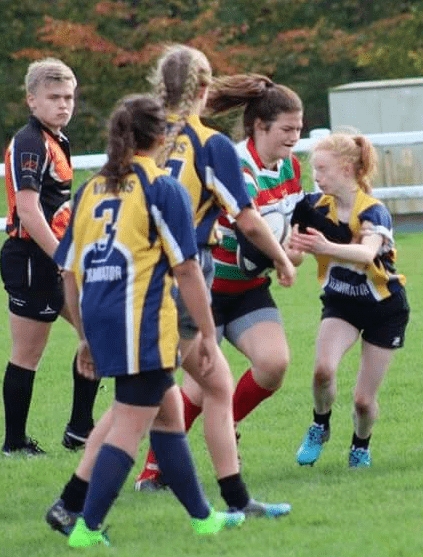 I came to this because I found that my original technique wasn’t working. I saw other girls using the grab-and-clamp style, and being successful with this I adapted my own method.
I came to this because I found that my original technique wasn’t working. I saw other girls using the grab-and-clamp style, and being successful with this I adapted my own method.
I developed this in both training and matches. In training, we don’t do much full contact. Therefore, matches provided the best time to test it out.
At the time I was learning this, I didn’t have much coach input. This was because we had a coaching group who didn’t know much about coaching. They were there since we needed someone to look after us.
This is an issue in girls’ rugby. The best coaches are never in the girls’ section. This meant that when I was creating my own effective technique since the coaches weren’t sure themselves, they weren’t able to question what I was doing.
Girls rugby is quite different from boys’ rugby. So, though the coaches knew about rugby overall, they couldn’t coach us effectively. We are different to coach because all through school, boys play a lot of sport, and they do rugby from a young age. For girls, because they are choosing to do it later on in their sporting lives, they are at a lower level than the boys. They have a lot less knowledge of what’s going on. When our coaches were trying to show us how to play, they didn’t understand what we didn’t understand.
I asked Eleanor how she got into rugby and why.
My dad used to play rugby, though he seems to change his story of which position he played a lot! And from the age of eight, he took me to watch the Leicester Tigers play.
I love rugby a lot because it’s a good way to channel my aggression. I get frustrated quite easily and rugby is a good way to let off steam. I also think this is something that is true of many of my teammates because we’ve had to fight extra hard to get where we are. However, some girls will play for different reasons, just like in the boy’s game.
I’m a scrum-half, and I also enjoy thinking of different moves to do. From that position, you can plan what to do in the next few phases. However, we mostly play what’s in front of us. We see what works and then use that again. I think that’s why the team has been so successful. There are still times when we use the moves, and that also works as well.
We mostly train by playing a game. We see what happens and then we have coaches’ input. They ask us: what if you did this or tried that? They give us a lot of questions and we think of a different way of doing it. This is a different group of coaches to my original coaches. They are more attuned to the girls’ game.
 There was some free funding for referee training within Leicestershire, so I thought I would try it out. I particularly enjoyed it because it allowed me to see the game from a completely different perspective. It means I can appreciate playing and watching the game.
There was some free funding for referee training within Leicestershire, so I thought I would try it out. I particularly enjoyed it because it allowed me to see the game from a completely different perspective. It means I can appreciate playing and watching the game.
The hardest bit is that moment when an unusual decision crops up and you can’t quite remember what to do.
I then asked Eleanor how the teams and crowds reacted to her. There must have been times when someone shouts at her for what they perceive as a poor decision.
I mostly block out the noise from the sidelines. I also think I don’t get shouted at as much as some referees because the players, parents and spectators see I’m young and female.
Like many new coaches, Eleanor started her coaching journey by filling in to help out her local girls’ side who were short of support. Since then, she has gone on to become a Level 2 coach. I asked her about the course.
I liked the Level 2 course because the CPD courses are just one short evening. On the course, you have three complete days to think entirely about coaching. You also get a chance to see other coaches and learn how they put their plans into practice.
My main takeaways from the course were using game zones and skill zones. You run a game and then break out into skill zones, moving the players between the two during the session. So, I teach them the technical parts of the game in the skill zone then test them out in the games zone.
I asked Eleanor which coaches she looked up to.

I now get a chance to train with the Loughborough coaches, who also run the Leicestershire girls team. Because one of them is a young female who’s gone through the same journey as I am on, I find that’s quite inspirational to me.
That’s Maria Crowfoot, who’s the DMU men’s coach, Loughborough Girls head coach and has been on the RFU National Youth Council. She tells us more about Eleanor's story below.
Winning the award
Eleanor has just won Leicestershire Young Player of the Year award. She told me more about the award.
I was so pleased to win because it was more about what I’d done around the game. Many of those things go under the radar, so it was lovely to know that I’ve been noticed by the people in the county for what I’m doing. It’s also meant I’ve been on local radio too, talking about my rugby experiences.
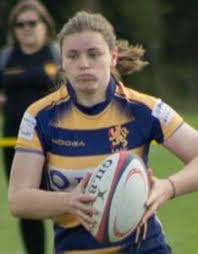
I knew Eleanor from the Leicestershire girls’ programme first as a player. Secondly, from working on a project called Spirit of Rugby Loughborough and we had a touch tournament development day at the local club. Eleanor is an active Young Rugby Ambassador and volunteered to help with the day. This is when I first saw her referee, she has a presence on the pitch and a way of speaking to players of all ages and genders that's really mature.
With regards to her tackle technique, I noticed this in a training session where we were working on footwork and the hit before contact. They had to hold a tennis ball in each hand to encourage the hit and wrap rather than grabbing. As soon as it was brought into a game it was noticeable it's not effective for smaller players. Her technique is different but effective and in a game that's what's important.
As a coach, it's great when players like Eleanor come up with new techniques or ideas as it keeps the sessions relevant and ahead of other teams. We like to create an environment where players can develop and find answers to questions themselves.
Players who aren't as strong or tall or have a physical presence often have to be technically more intelligent. Finding ways of using opposition size to their own advantage or being smarter. And Eleanor does this with great effect.
We also have the U15s train with Eleanor and the U18s. I think this has sped up both age groups development. For the 15s, their handling, decision making and general knowledge has to be better when playing the 18s. And for the 18s I've started to notice elements of mentoring and coaching from them towards the younger players. We do it for numbers but actually, there are so many other benefits for non-contact training together.
The girls love watching the ladies play; especially when they know the players. It means in training I can give examples of female local players which is always going to help their understanding and keep the interest. Coaching in the female game is frustrating, it's a mixed bag and often coaches use it as a springboard into the male game.
Young female coaches struggle to juggle coaching and playing commitments. I think CBs, clubs and RFU can do a lot to organise fixtures at different times and days to help this conflict; ultimately providing more female coaches for female sides. Hopefully, with the new 365 pitches, we can see an increase of Friday night lights for example.
The women's game has come on leaps and bounds in the last decade and Eleanor is a great example of the opportunities and work that has gone in, to grow the game. I'm sure she is inspiring others around her and hope she continues to strive for her goals in all areas of her coaching, refereeing and playing.
 Eleanor Wilkinson is a RFU level 2 coach, referee and a player. She’s also just won Leicestershire Young Female Player of the Year. That’s a lot to pack in for someone who’s still only 16 and in her first year of college. I caught up with Eleanor to find out more about her busy rugby life. She gave me plenty of insights into the game and the women’s game that might well make you rethink your own approach.
Eleanor Wilkinson is a RFU level 2 coach, referee and a player. She’s also just won Leicestershire Young Female Player of the Year. That’s a lot to pack in for someone who’s still only 16 and in her first year of college. I caught up with Eleanor to find out more about her busy rugby life. She gave me plenty of insights into the game and the women’s game that might well make you rethink your own approach.Training to give you confidence
Eleanor started playing over six years ago, though she spent the first year just training because there wasn’t an U13s girls team at her club.
It was frustrating that I couldn’t get matches, but in the long run, it was helpful for my development. I had been training with older girls, so it meant I understood things a lot better. So, I wasn’t pressured into playing before I was ready.
I was more developed because I got used to tackling girls who were under 15s and under 18s. I’m just five foot now and I was tiny then. So, coming into matches when I was with the right age group, the larger girls weren’t used to being tackled by someone who knew how to deal with them.
Not the best tackling technique
I asked Eleanor about how she approached tackling since this was quite a major aspect for a young player.
I don’t think I have the best technique. I’ve found if I do use the right technique I can’t get them down. So, I’ve developed my own way of tackling that works.
I try to grab them with my hands to pull them into my body and stop them. If I try to go in with the shoulder I tend to bounce off.

I developed this in both training and matches. In training, we don’t do much full contact. Therefore, matches provided the best time to test it out.
Girls rugby needs quality coaching
At the time I was learning this, I didn’t have much coach input. This was because we had a coaching group who didn’t know much about coaching. They were there since we needed someone to look after us.
This is an issue in girls’ rugby. The best coaches are never in the girls’ section. This meant that when I was creating my own effective technique since the coaches weren’t sure themselves, they weren’t able to question what I was doing.
Girls rugby is quite different from boys’ rugby. So, though the coaches knew about rugby overall, they couldn’t coach us effectively. We are different to coach because all through school, boys play a lot of sport, and they do rugby from a young age. For girls, because they are choosing to do it later on in their sporting lives, they are at a lower level than the boys. They have a lot less knowledge of what’s going on. When our coaches were trying to show us how to play, they didn’t understand what we didn’t understand.
Why I play rugby
I asked Eleanor how she got into rugby and why.
My dad used to play rugby, though he seems to change his story of which position he played a lot! And from the age of eight, he took me to watch the Leicester Tigers play.
I love rugby a lot because it’s a good way to channel my aggression. I get frustrated quite easily and rugby is a good way to let off steam. I also think this is something that is true of many of my teammates because we’ve had to fight extra hard to get where we are. However, some girls will play for different reasons, just like in the boy’s game.
I’m a scrum-half, and I also enjoy thinking of different moves to do. From that position, you can plan what to do in the next few phases. However, we mostly play what’s in front of us. We see what works and then use that again. I think that’s why the team has been so successful. There are still times when we use the moves, and that also works as well.
We mostly train by playing a game. We see what happens and then we have coaches’ input. They ask us: what if you did this or tried that? They give us a lot of questions and we think of a different way of doing it. This is a different group of coaches to my original coaches. They are more attuned to the girls’ game.
Becoming a referee
 There was some free funding for referee training within Leicestershire, so I thought I would try it out. I particularly enjoyed it because it allowed me to see the game from a completely different perspective. It means I can appreciate playing and watching the game.
There was some free funding for referee training within Leicestershire, so I thought I would try it out. I particularly enjoyed it because it allowed me to see the game from a completely different perspective. It means I can appreciate playing and watching the game.The hardest bit is that moment when an unusual decision crops up and you can’t quite remember what to do.
I then asked Eleanor how the teams and crowds reacted to her. There must have been times when someone shouts at her for what they perceive as a poor decision.
I mostly block out the noise from the sidelines. I also think I don’t get shouted at as much as some referees because the players, parents and spectators see I’m young and female.
Coaching journey
Like many new coaches, Eleanor started her coaching journey by filling in to help out her local girls’ side who were short of support. Since then, she has gone on to become a Level 2 coach. I asked her about the course.
I liked the Level 2 course because the CPD courses are just one short evening. On the course, you have three complete days to think entirely about coaching. You also get a chance to see other coaches and learn how they put their plans into practice.
My main takeaways from the course were using game zones and skill zones. You run a game and then break out into skill zones, moving the players between the two during the session. So, I teach them the technical parts of the game in the skill zone then test them out in the games zone.
I asked Eleanor which coaches she looked up to.

I now get a chance to train with the Loughborough coaches, who also run the Leicestershire girls team. Because one of them is a young female who’s gone through the same journey as I am on, I find that’s quite inspirational to me.
That’s Maria Crowfoot, who’s the DMU men’s coach, Loughborough Girls head coach and has been on the RFU National Youth Council. She tells us more about Eleanor's story below.
Winning the award
Eleanor has just won Leicestershire Young Player of the Year award. She told me more about the award.
I was so pleased to win because it was more about what I’d done around the game. Many of those things go under the radar, so it was lovely to know that I’ve been noticed by the people in the county for what I’m doing. It’s also meant I’ve been on local radio too, talking about my rugby experiences.

Maria Crowfoot (DMU men’s coach and Loughborough Girls head coach) writes:
I knew Eleanor from the Leicestershire girls’ programme first as a player. Secondly, from working on a project called Spirit of Rugby Loughborough and we had a touch tournament development day at the local club. Eleanor is an active Young Rugby Ambassador and volunteered to help with the day. This is when I first saw her referee, she has a presence on the pitch and a way of speaking to players of all ages and genders that's really mature.
With regards to her tackle technique, I noticed this in a training session where we were working on footwork and the hit before contact. They had to hold a tennis ball in each hand to encourage the hit and wrap rather than grabbing. As soon as it was brought into a game it was noticeable it's not effective for smaller players. Her technique is different but effective and in a game that's what's important.
As a coach, it's great when players like Eleanor come up with new techniques or ideas as it keeps the sessions relevant and ahead of other teams. We like to create an environment where players can develop and find answers to questions themselves.
Players who aren't as strong or tall or have a physical presence often have to be technically more intelligent. Finding ways of using opposition size to their own advantage or being smarter. And Eleanor does this with great effect.
We also have the U15s train with Eleanor and the U18s. I think this has sped up both age groups development. For the 15s, their handling, decision making and general knowledge has to be better when playing the 18s. And for the 18s I've started to notice elements of mentoring and coaching from them towards the younger players. We do it for numbers but actually, there are so many other benefits for non-contact training together.
The girls love watching the ladies play; especially when they know the players. It means in training I can give examples of female local players which is always going to help their understanding and keep the interest. Coaching in the female game is frustrating, it's a mixed bag and often coaches use it as a springboard into the male game.
Young female coaches struggle to juggle coaching and playing commitments. I think CBs, clubs and RFU can do a lot to organise fixtures at different times and days to help this conflict; ultimately providing more female coaches for female sides. Hopefully, with the new 365 pitches, we can see an increase of Friday night lights for example.
The women's game has come on leaps and bounds in the last decade and Eleanor is a great example of the opportunities and work that has gone in, to grow the game. I'm sure she is inspiring others around her and hope she continues to strive for her goals in all areas of her coaching, refereeing and playing.
Newsletter Sign Up
Coaches Testimonials

Gerald Kearney, Downtown Las Vegas Soccer Club

Paul Butler, Florida, USA

Rick Shields, Springboro, USA

Tony Green, Pierrefonds Titans, Quebec, Canada
Subscribe Today
Be a more effective, more successful rugby coach
In a recent survey 89% of subscribers said Rugby Coach Weekly makes them more confident, 91% said Rugby Coach Weekly makes them a more effective coach and 93% said Rugby Coach Weekly makes them more inspired.
Get Weekly Inspiration
All the latest techniques and approaches
Rugby Coach Weekly offers proven and easy to use rugby drills, coaching sessions, practice plans, small-sided games, warm-ups, training tips and advice.
We've been at the cutting edge of rugby coaching since we launched in 2005, creating resources for the grassroots youth coach, following best practice from around the world and insights from the professional game.


